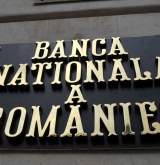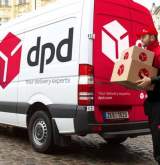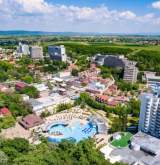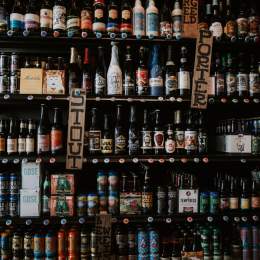10. Romania's country brand
Last year, the Ministry of Tourism organized the pitch for the country brand. It will be a new attempt to bring Romania on foreign tourists’ “countries to visit” list. 13 ad companies, research or travel agencies joined the competition. The pitch was brought to a halt over disputes on the selection process of the three finalists. The ministry has chosen the bid with the lowest price - €895,000 - made by THR – Asesores en Turismo, Hoteleria y Recreation SA – Taylor Nelson Sofres SA, a price “suspiciously low”.
9. Lucian Sarb at Euronews
Euronews is the news channel with the highest viewership in Europe. It covers world news in eight languages and its main competitors are CNN and BBC World. Euronews was founded as a group of European public broadcasters. Majority shareholders are from France, Switzerland, Italy and Russia.
8. Development of the cinema industry
7. Transactions in the online media
“With 5 years of history, an excellent team, a portfolio consisting of top sites and a strong financial backer, InternetCorp is no longer a start-up,” said Mihai Seceleanu, InternetCorp’s CEO (photo).
The companies involved in the deal refused to disclose the value of the company, but according to Ziarul Financiar daily, the acquisition of a minority stake in InternetCorp evaluates the company at an estimated €8 million.
6. TV stations cut back on ad brokersĺ services
DBV Media House’s portfolio narrowed to two clients as well (OTV and One Music Channel), after Realitatea Media that generated around 90% of the agency’s working capital, has cut back on ad space selling services in a broader cost-containment program.
5. Newspapers ditch print editions
Publimedia International has shifted the operation of local newspapers Hunedoreanul, Clujeanul, Bihoreanul, Banateanul and Ieseanul wholly to the internet, after it considered shutting them permanently. The Clujeanul crew left the publication and set up from own funds a weekly newspaper called Viata Clujeanului.
EMI European Media Investment AG, majority shareholder of Monitorul de Cluj, Monitorul de Sibiu, Monitorul de Medias and Monitorul de Alba sold the newspapers to minority shareholders. The decision was influenced by Goldbach Media Group’s strategy of focusing exclusively on online media.
4. Bigger and Boom go out of business
In July, one of the largest online ad brokers, Boom Advertising, part of Netbridge Investment, entered insolvency proceedings after the legal action filed by imobiliare.ro publisher, which is part of the same company.
3. Sarbu sells Buftea film studios
Sarbu has also been the “leading actor” in one of the largest deal in the media market by value in 2009: the sale of MediaPro Entertainment (which includes Media Pro Pictures, Media Pro Studios, Media Pro Distribution, Pro Video, Media Pro Music & Entertainment, Cinema Pro and Hollywood Multiplex) to CME, at an estimated $97.6 million.
But managing a multinational company was no easy task in a year that had seen many companies sinking into loss and shedding jobs or customers. Late April, when CME was posting net loss of $44.4 million in the first quarter, Sarbu said the first quarter of 2009 had been the toughest in CME history.
2. Vantu sheds print operations
Realitatea Media, company held by Sorin Ovidiu Vantu bought in 2006 Catavencu SA, a deal completed in 2009 when Realitatea acquired the remaining 10% interest in Catavencu. However, from October, the company has relinquished gradually to a number of titles – from lifestyle magazines (Tabu, Superbebe, Bucataria pentru toti, Aventuri la pescuit) to Cotidianul and Business Standard.
Money Express magazines has been acquired by special projects company M&C Strategy, owned by Dragos Nedelcu and Sorin Frenciu, according to paginademedia.ro, while NewsIn agency has been taken over by incumbent chief executive Cosmin Popa.
1. Ad market slumps 40%
The biggest drops were recorded in the print media that reached €40 million in 2009, half the 2008 size of €82 million. Outdoor ad market sank to around €44 million, 37.1% below year-ago level.
TV industry dropped to €225 million, 33.2% less than €337 million in 2008.
Although early 2009 projections had indicated stagnation in the online market, representatives of the media agency predicted a decline to €13 million from €16 million in 2008.




























































![HR [PLAY] Tech Workout - 11...](https://www.wall-street.ro/image_thumbs/thumbs/973/973fe0a3888d417feff63de42e814180-260x260-00-65.jpg?v=1713953070)










